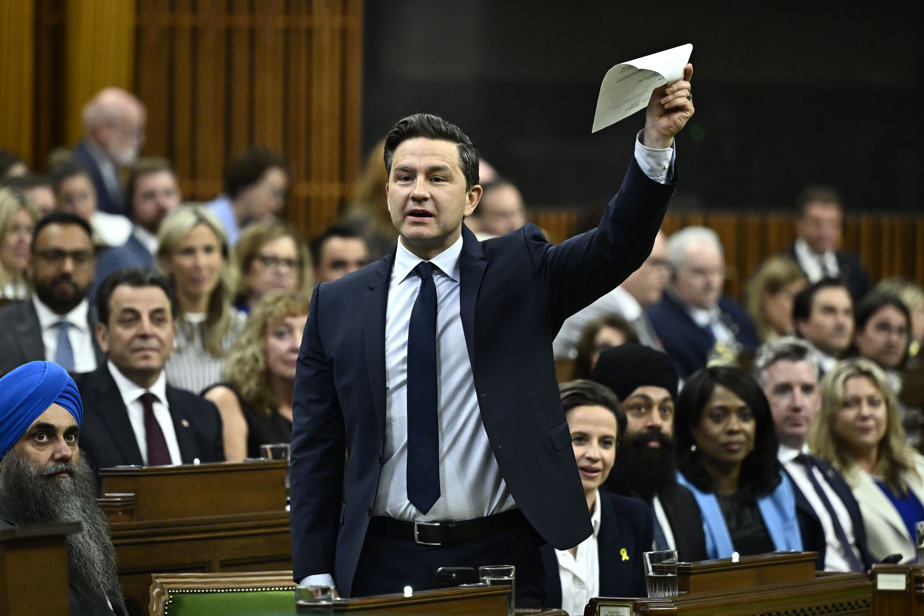(Ottawa) The Conservative Party is urging the Trudeau government to reveal the identities of parliamentarians who allegedly helped foreign states interfere in Canadian politics. For its part, the RCMP says it is conducting investigations into matters related to foreign interference, but refuses to say whether investigations target elected officials or senators.
“Canadians have the right to know who […] Who are they? », questioned Conservative Leader Pierre Poilievre in the House of Commons on Wednesday.
“The leader of the official opposition knows very well that no government […] publicly discusses security intelligence,” retorted Public Safety Minister Dominic LeBlanc.
The conservative leader has so far refused, like Bloc leader Yves-François Blanchet, to acquire the so-called “top secret” security clearance allowing access to this type of document.
New Democratic leader Jagmeet Singh, for his part, took advantage of it and called for an information session.
However, the president of the CPSNR, the liberal David McGuinty, persists and signs: there is no question of identifying parliamentarians who are in the pay of foreign state entities.
What happens next is up to the Royal Canadian Mounted Police (RCMP), he said Wednesday morning in a press scrum.
Because the members of the Committee are bound to secrecy in perpetuity under the Protection of Information Act, he insisted.
In short, if they reveal top-secret information consulted in the course of their duties, they are exposed to criminal prosecution.
The redaction process was carried out with extreme rigor, argued MP McGuinty in the press scrum upon his arrival for the weekly meeting of the Liberal caucus.
The RCMP said Wednesday that investigations into “a range of foreign interference in Canada, including matters that cut across democratic institutions” were ongoing.
The federal police, however, refused to say whether criminal investigations targeting parliamentarians were underway.
“A confirmation […] before having a sufficient level of proof could potentially harm reputations, or interfere with an ongoing investigation,” it said in a statement in English.
The Trudeau government recently introduced Bill C-70, which aims to strengthen Canada’s arsenal to combat foreign interference.
Welcoming this “encouraging first step”, David McGuinty nevertheless argued that we should “take the necessary time” to dissect it.
However, at the instigation of the Conservative Party, it was decided to do everything possible to rush the legislative measure through.
In government, there is talk of adoption before the summer holidays – including Wednesday, there are 13 days left on the clock in the House of Commons.
The legislative measure is currently being studied by the Standing Committee on Public Security and National Security.
The Canadian Civil Liberties Association (CCLA) communicated on Wednesday its “deep concerns” about this desire to legislate with such speed.
While recognizing “the importance of addressing any threat to Canadian democracy,” the examination of this complex bill “helped identify several questions left unanswered,” it was reported.
The content of the CPSNR report shook the columns of Parliament.
During question period on Tuesday, Bloc leader Yves-François Blanchet invited the Liberals “to talk to each other so that we can identify who it is” within the caucus.
It turns out that the all-party caucuses were meeting for the first time since the report was released on Wednesday.
In the corridor leading to the room where the Liberal caucus meets in the morning, the elected officials intercepted generally preferred to reserve their comments.
Conservative MPs were not more vocal.
But across all parties, there was concern given the publication of this report.




